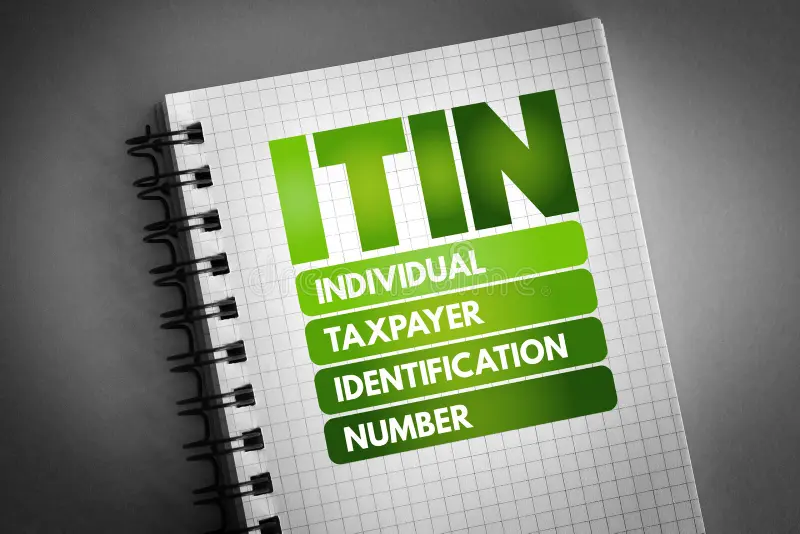I explain Individual Taxpayer Identification Numbers (ITIN).
What is ITIN?
An ITIN is an individual taxpayer identification number issued by the United States Internal Revenue Service (IRS). An ITIN is a number required by non-residents, such as aliens, who do not have a Social Security Number (SSN), to file tax returns in the United States. It is a nine-digit number, formatted like a Social Security Number (NNN-NN-NNNN), starting with the digit “9”.
Who Needs an ITIN?
Taxpayers and their families who are required to file tax returns in the United States but do not have a Social Security Number (SSN). An ITIN is required in the following situations:
1. Aliens not residing in the United States:
If you earn income in the United States and are required to pay taxes on that income, you must obtain an ITIN.
For example, non-residents may own US real estate or conduct business in the US.
2. Accompanying family members (spouse and children) of taxpayers working on work visas:
If you are a spouse or child of a taxpayer and you do not earn income in the United States, but you are going to file a US tax return with taxpayer, you may need an ITIN.
For example, if the spouse of a taxpayer on a work visa does not have a Social Security Number (SSN), the spouse can apply for an ITIN to file a married filing jointly return with a concessionary tax rate. Also, if a taxpayer’s child does not have a Social Security Number (SSN) and meets the requirements for dependents, the child can apply for an ITIN to get a dependent exemption.
However, the taxpayer’s accompanying family members who are eligible to apply for an ITIN also depend on the type of taxpayer’s work visa.
For tax years after December 31, 2017, spouses and dependents are not eligible for an ITIN or to renew an ITIN, unless they are claimed for an allowable tax benefit or they file their own tax return. The individual must be listed on an attached U.S. federal tax return with the schedule or form that applies to the allowable tax benefit. Allowable tax benefits include filing jointly as a married couple (with preferential tax rates), filing by head of household (with preferential tax rates), American Opportunity Tax Credit (AOTC), and Premium tax credits (PTC), Child and dependent care credits (CDCC), and Credit for other dependents (ODC).
When applying for an ITIN, the IRS may reject the application for reasons such as incomplete signatures on documents.
Importantly, an ITIN is a tax identification number, not a social security number (SSN).
ITINs are for tax purposes only.
Summary
An ITIN is an individual taxpayer identification number issued by the US Internal Revenue Service (IRS) to anyone who does not have a Social Security Number (SSN) but is required to file a tax return. An ITIN is for tax purposes only and is different from a Social Security Number.




Comment